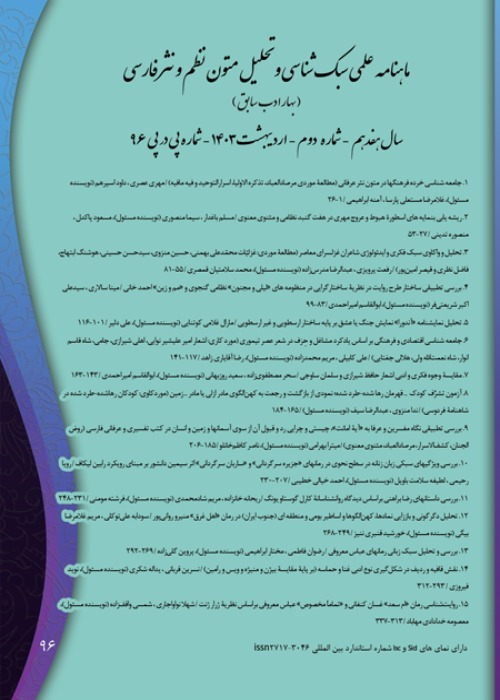The function of the wind element in Shahnameh stories
One of the important functions in constructing Shahnameh narratives is the role of nature elements in events and human destiny. Among these natural elements, the element of wind has a special place. In Avesta, the difference between fire, water, soil on the one hand and wind on the other is significant. While the first three gods are only one species and have positive attributes, wind is two species. In Middle Persian texts, "God of the Wind" or "Wai Nik" and other "Demon of the Wind" or "Woe Bad" are mentioned. In the menu, wisdom is the wind among the gods, which is praised for its strength, and on the other hand, it is the devil wind that causes storms and strong winds. In the mentioned texts, the god of wind is praised for making kings and heroes in battle and their victory. This article has tried to study the role of the element of wind in ancient texts and Ferdowsi's Shahnameh and to show what changes this element undergoes after entering the epic space.
In this research, information was collected through library sources and the method of this research is descriptive-analytical. The basic text of Ferdowsi's Shahnameh is a 4-volume correction of Jalal Khaleghi Motlagh.
In Ferdowsi Shahnameh, wind is known for its pleasant and fragrant attributes. Bad wind is also associated with traits such as sharp, hard, dark and smoky. This element, regardless of its divine-demonic character, rushes to the aid of kings or heroes and often comes to the aid of Kaykhosrow.
Bakundukav in the narrations of the national epic came to the conclusion that this element has lost its divine character and has become a natural element that acts only by the command of God Almighty and often supports the king and the worthy hero and fights for the right. They are.
- حق عضویت دریافتی صرف حمایت از نشریات عضو و نگهداری، تکمیل و توسعه مگیران میشود.
- پرداخت حق اشتراک و دانلود مقالات اجازه بازنشر آن در سایر رسانههای چاپی و دیجیتال را به کاربر نمیدهد.


